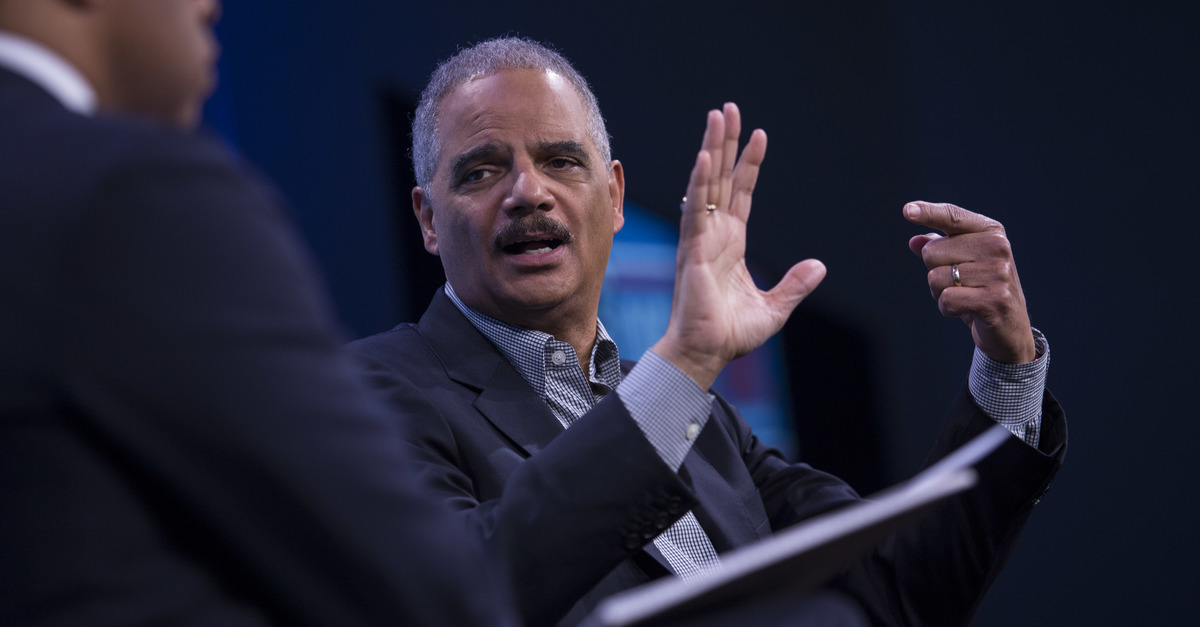
Attorney General William Barr announced prior to the release of Special Counsel Robert Mueller‘s report that, based on the report’s findings, he did not believe there was enough evidence to prosecute President Donald Trump for obstruction of justice. He also noted that Mueller’s report did not reach a conclusion one way or the other over this issue.
Former Attorney General Eric Holder, on the other hand, disagrees. Strongly.
“ANY competent public corruption prosecutor would bring obstruction charges against Trump/and win,” Holder said in a Friday tweet. “Only reason Mueller did not was because of the flawed DOJ restriction against indicting a sitting President.”
ANY competent public corruption prosecutor would bring obstruction charges against Trump/and win. Only reason Mueller did not was because of the flawed DOJ restriction against indicting a sitting President. He said so (below). Congress now has a constitutional responsibility. pic.twitter.com/SkntzjfS5G
— Eric Holder (@EricHolder) April 19, 2019
Holder, who served under President Barack Obama, included a screenshot of the portion of Mueller’s report that explained why he didn’t reach a conclusion: it was due to the Justice Department’s policy not to indict a sitting president, because it could interfere with the president’s duties and the functioning of the executive branch. Holder has spoken out against this policy in the past, even suggesting a creative loophole for getting around the concern about how the executive branch would function.
In a December tweet, Holder said that if a president is unable to perform his or her duties, that’s what the 25th Amendment is for. The constitutional measure that has usually come up as a remedy for when a president is physically or mentally unfit to do the job is Holder’s solution for how to handle a prosecution of the president.
Constitution does not anticipate allowing a president who used fraud to obtain the office to remain in power. Executive branch paralysis during the criminal process is not a compelling argument- consider 25th Amendment. A sitting president can be indicted. https://t.co/zbcjdnJaD6
— Eric Holder (@EricHolder) December 11, 2018
For the duration of the case, the Vice President could take over, and then return the power of the presidency after it’s over (should the president still be in office by that point).
Barr, however, said in a letter to Congress that his decision against prosecuting Trump for obstructionwas not based on “the constitutional considerations that surround the indictment and prosecution of a sitting president.” During a press conference held in the hours before the report’s release, Barr pointed to issues related to Trump’s intent, which would pose difficulties in proving an obstruction case.
[Image via Toya Sarno Jordan/Getty Images]